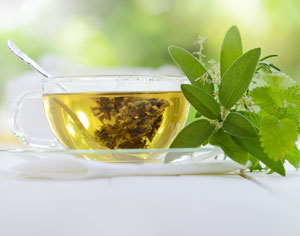The Surprising Effects of Green Tea on Growth Hormone
It has long been known that green tea helps with weight loss, metabolism, boosting immunity, and even stimulating brain functions, but perhaps not so well known are the surprising effects of green tea on growth hormone.
Is there any connection between growth hormone and green tea?
The connection between green tea & growth hormones is demonstrated by looking at Asian populations, where the consumption of green tea is greater than in the US.
There we find lower mortality rates for disease and increased longevity, along with the following:
- Both green tea and growth hormone stimulate the metabolic processing of food to use as fuel rather than get stored away as fat. This process also includes targeting fat cells for use, leading to weight loss.
- A study of 13,988 individuals in Japan over the age of 65 turned up the following benefits of green tea (that are also benefits of growth hormone): [1]
- Lower risk of cognitive impairment
- Lower incidence of depression
- Lower risk of mortality due to pneumonia (HGH has immune-boosting properties)
- Reduced risk of osteoporosis
- Additional benefits from green tea were indicated for cardiovascular risk factors and stroke
With age, the production of growth hormone in the body slows down. Not all people experience this decline in the same way.
For example, those who are most active, maintain a healthy diet, and get adequate sleep tend to have the highest levels of GH as they get older.
Unfortunately, an unhealthy lifestyle has the opposite effect, and chances are those individuals do not consume regular servings of green tea. HGH decline in these adults may be tied to the all-around improper care of their bodies, including a lack of the polyphenols found in green tea that can help HGH production.
Can green tea affect GH levels?
Unfermented green tea leaves contain polyphenolic structures from the family of flavonols containing a group of compounds referred to as “green tea catechins” made up of:
- Epigallocatechin
- Catechin
- Epigallocatechin-3-0-gallate (EGCG)
- Gallocatechin-3-0-gallate
- Epigallo-3-0-methylgallate
- Epicatechin-3-0-gallate
It is EGCG that has antiviral, antibacterial, antimetastatic, antioxidant, and antiangiogenic properties.
A study of 56 men and 44 women between the ages of 25 and 60 who were overweight and divided into two randomized groups:
- Group A 27 men, 23 women – received only the hypocaloric diet
- Group B 29 men, 21 women – received both the hypocaloric diet plus MonCam (a green tea extract)
The results of the green tea HGH study were as follows: [2]
| Hormone Level | Group A | Group B |
| LDL cholesterol | From 130 ± 21 mg/L to 118 ± 22 | From 132 ± 25 mg/L to 105 ± 15 |
| HDL cholesterol | From 40 ± 5 mg/L to 44 ± 7 | From 42 ± 6 mg/L to 51 ± 7 |
| Growth hormone | From 4.0 ± 2.2 µg/L to 4.8 ± 3.1 | From 3.8 ± 1.5 µg/L to 12.2 ± 4.1 |
| IGF-1 | From 142 ± 28 µg/L to 163 ± 35 | From 140 ± 25 µg/L to 174 ± 28 |
| Insulin | From 18 ± 2 mU/L to 15 ± 3 | From 19 ± 3 mU/L to 12 ± 5 |
| Cortisol | From 150 ± 30 µg/L to 130 ± 15 | From 152 ± 37 µg/L to 116 ± 25 |
As you can see, HDL cholesterol, growth hormone, and insulin growth factor 1 levels all rose while LDL cholesterol, insulin, and cortisol all decreased significantly more for Group B.
Why do supplements like green tea boost HGH?
All it takes is one trip to a vitamin shop to see the myriad of supplements aimed at various health concerns. Weight loss is often at the top of the list.
Boosting hormone levels such as growth hormone also rates high – if for no other reason, the sheer fact that HGH does so much for the body.
These supplements often contain amino acids, or flavonoids such as the properties in green tea, and work to stimulate the production of certain chemicals in the body, such as growth hormone.
Does green tea increase HGH in its supplement form rather than just by drinking a few cups a day?
Based on the green tea HGH study of the highly bioavailable green tea extract, the answer is yes.
Not only did the subjects receiving the green tea along with following a hypocaloric diet lose more weight and body mass index (14 kg compared to 5 kg) than those who only used the diet, but their growth hormone, cholesterol, insulin growth factor-1, cortisol, insulin, and triglyceride levels also improved.
There is no doubt of the importance of both green tea and HGH for the body, but, unfortunately, not everyone who increases green tea consumption will see enough of an increase in growth hormone levels to make a significant change in well-being. There may still be those with a severe deficiency who can benefit from HGH therapy.
For additional information, or to speak with a hormone specialist about your personal situation, please contact National HRT for a free consultation.
- Cancer Prev Res (Phila). Author manuscript; available in PMC 2013 Sep 19. Cancer Prev Res (Phila). 2012 Mar; 5(3): 393–402
- Effect of 2 month controlled green tea intervention on lipoprotein cholesterol, glucose, and hormone levels in healthy postmenopausal women Anna H. Wu, Darcy Spicer, Frank Z. Stanczyk, Chiu-chen Tseng, Chung S. Yang, and Malcolm C. Wu, and Malcolm C. Pike
- MUSClESPRO
- Herb scientist




